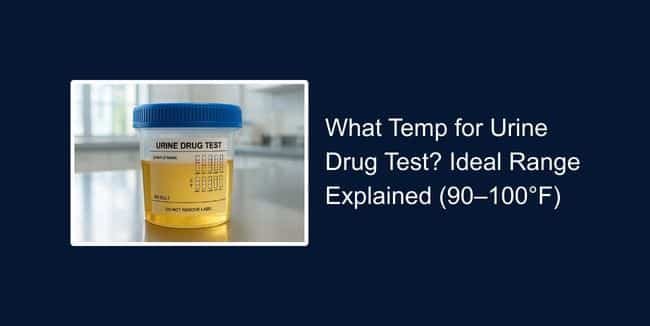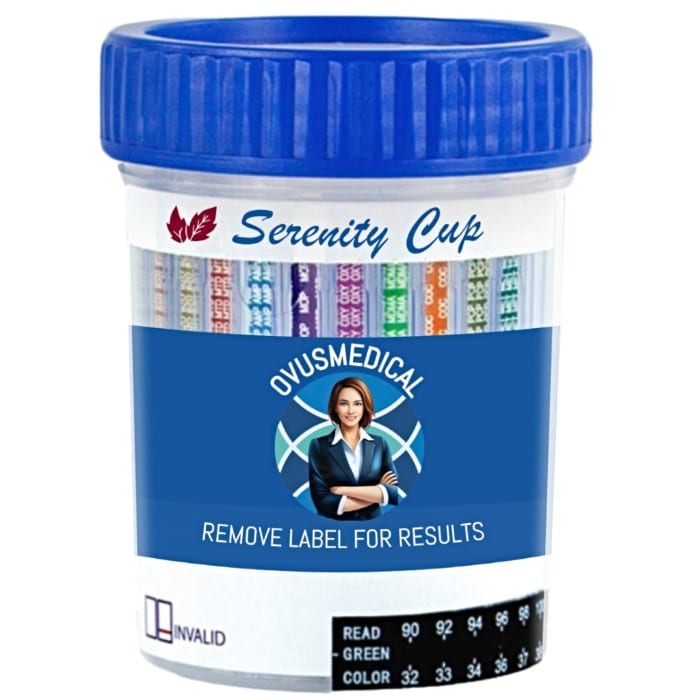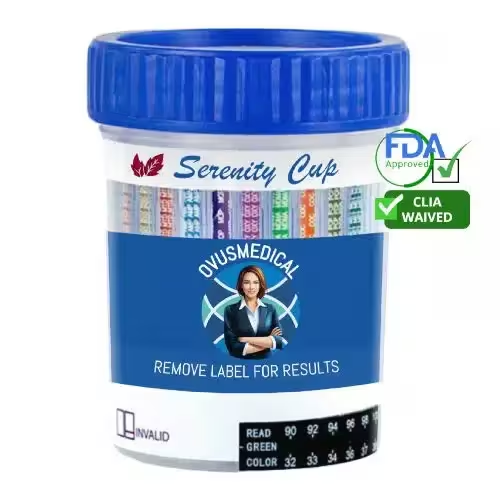Urine drug tests are among the most common methods used to detect illegal substances or prescription medications. They are popular because they are simple, non-invasive, and effective at identifying a wide range of substances. Employers, courts, and healthcare providers rely on them for screening and monitoring.
The accuracy of these tests depends heavily on the integrity of the sample. One key factor? Temperature. If a urine sample is outside the acceptable range, it may be flagged as tampered with or invalid, which can lead to rejection or additional testing.
Importance of Temperature in Urine Samples
Temperature is the first thing tested when you provide a urine sample. Fresh urine should measure between 90°F and 100°F (32°C–38°C). If the reading is outside this range, the sample may be considered suspicious.
- Too cold → stored or substituted sample.
- Too hot → artificially heated urine.
Collection cups usually have a temperature strip for instant verification. If the sample isn’t within range, you may be asked to provide another sample under stricter supervision.
The Ideal Temperature Range
A fresh urine sample should fall between 90°F–100°F (32°C–38°C), closely aligning with the body’s natural temperature of ~98.6°F (37°C).
- Below 90°F → likely stored or tampered.
- Above 100°F → likely overheated to mimic freshness.
Providing the sample quickly and minimizing delays helps keep it in range.
Factors That Affect Urine Temperature
Several factors can cause your sample’s temperature to shift:
- Time delay — urine cools quickly outside the body.
- Environment — cold rooms make it drop faster; warm rooms retain heat.
- Collection method — direct collection into the cup vs. transferring between containers.
Being mindful of these variables can help ensure a valid result.
How to Maintain Optimal Temperature
Practical steps to avoid temperature issues:
- Provide the sample promptly after collection.
- Use a container with a built-in temperature strip.
- If necessary, use body heat to maintain warmth before handing it over.
- In some cases, warming devices (like hand warmers) are used, but overheating raises red flags.
The goal: keep the sample natural and fresh.
Common Myths About Urine Drug Testing
There are plenty of misconceptions about passing urine drug tests:
- “Drink gallons of water” → can lead to diluted samples, flagged for retesting.
- “Add vinegar or bleach” → modern labs easily detect adulteration.
- “Detox drinks will clear everything” → mostly ineffective and sometimes detectable.
Relying on myths often backfires.
Legal and Ethical Considerations
Tampering with a urine sample is both unethical and risky. Legal consequences can include:
- Fines
- Job loss
- Criminal charges
Employers must conduct fair tests, and individuals must provide honest samples. Maintaining integrity keeps the process trustworthy.
Tips for Passing a Urine Drug Test
- Stay hydrated (but not excessively).
- Abstain well in advance if you know you’ll be tested.
- Exercise regularly to help your body detox naturally.
- Provide a midstream sample — the cleanest portion for accuracy.
Alternatives to Urine Drug Tests
Other testing methods exist, each with pros and cons:
- Hair follicle tests — 90-day detection window, more expensive.
- Saliva tests — quick and non-invasive, short detection window.
- Blood tests — highly accurate, but invasive and costly.
Knowing the alternatives helps you understand the testing landscape.
You may also like…
-
13 Panel Drug Test w/ FYL
As Low As $2.39
Forensic Use Only
$3.19 Info & Price This product has multiple variants. The options may be chosen on the product page -
14 Panel Drug Test Cup PCP
As Low As $2.79
Forensic Use Only
$3.59 Info & Price This product has multiple variants. The options may be chosen on the product page -
10 Panel Drug Test Cup
As Low As $1.89
FDA/Clia Waived
$2.89 Info & Price This product has multiple variants. The options may be chosen on the product page
Conclusion
Temperature plays a critical role in the validity of urine drug tests. By understanding the ideal range, factors that affect it, and how to maintain it, you can approach testing with confidence. Stay informed, avoid myths, and remember that honesty and preparation are the best strategies.
FAQ
What is the acceptable temperature for urine drug tests?
Between 90°F and 100°F (32°C–38°C).
How fast does urine cool down after leaving the body?
It can drop below range within minutes if not submitted promptly.
What happens if urine is too cold or too hot?
The sample may be flagged as tampered with, and a retest may be required.
Can I warm up urine if it’s too cold?
Ensure Accurate Drug Testing Every Time
At Ovus Medical, we provide CLIA-waived urine drug test cups and strips trusted by professionals nationwide. Reliable, fast, and cost-effective.




